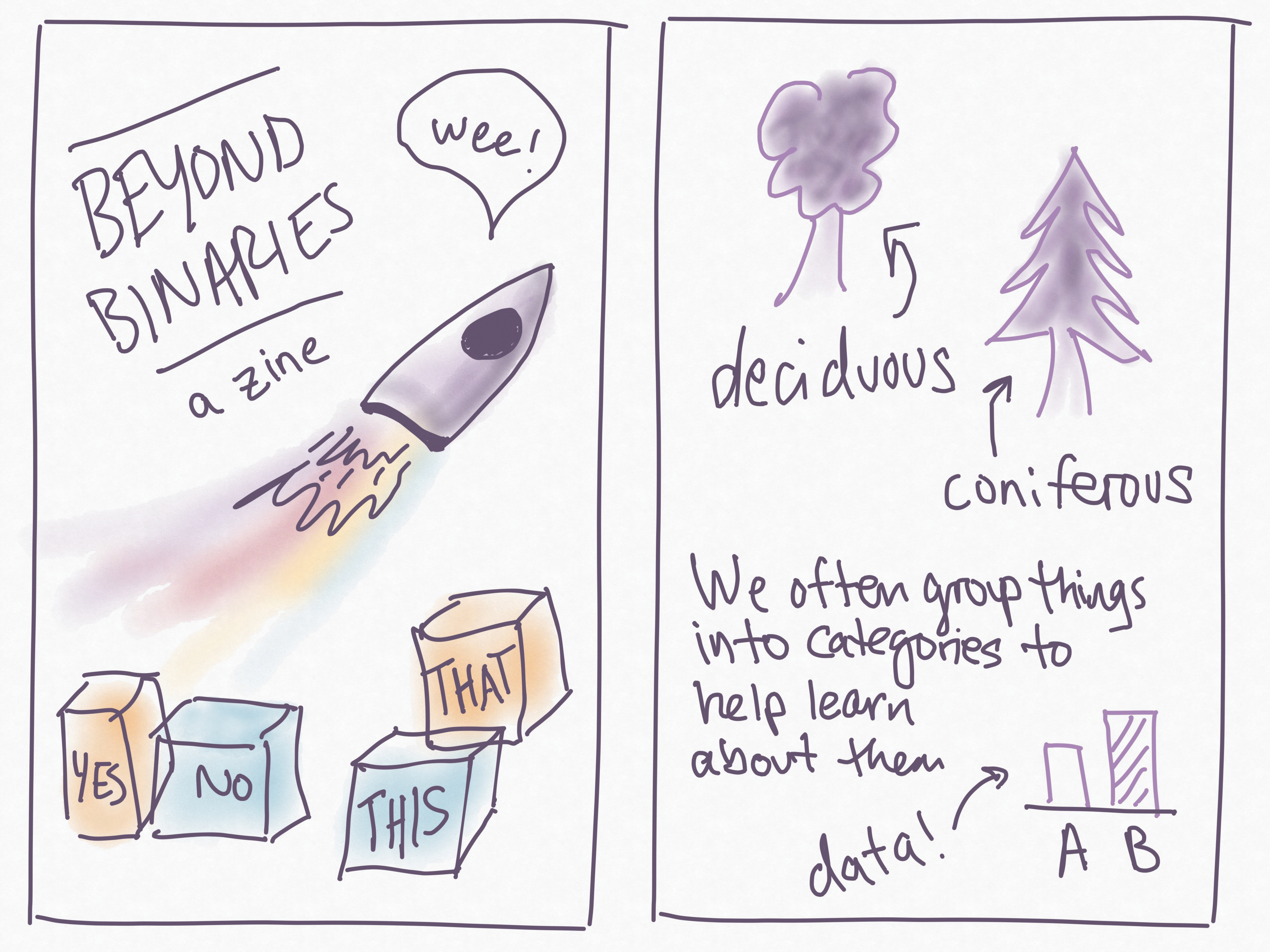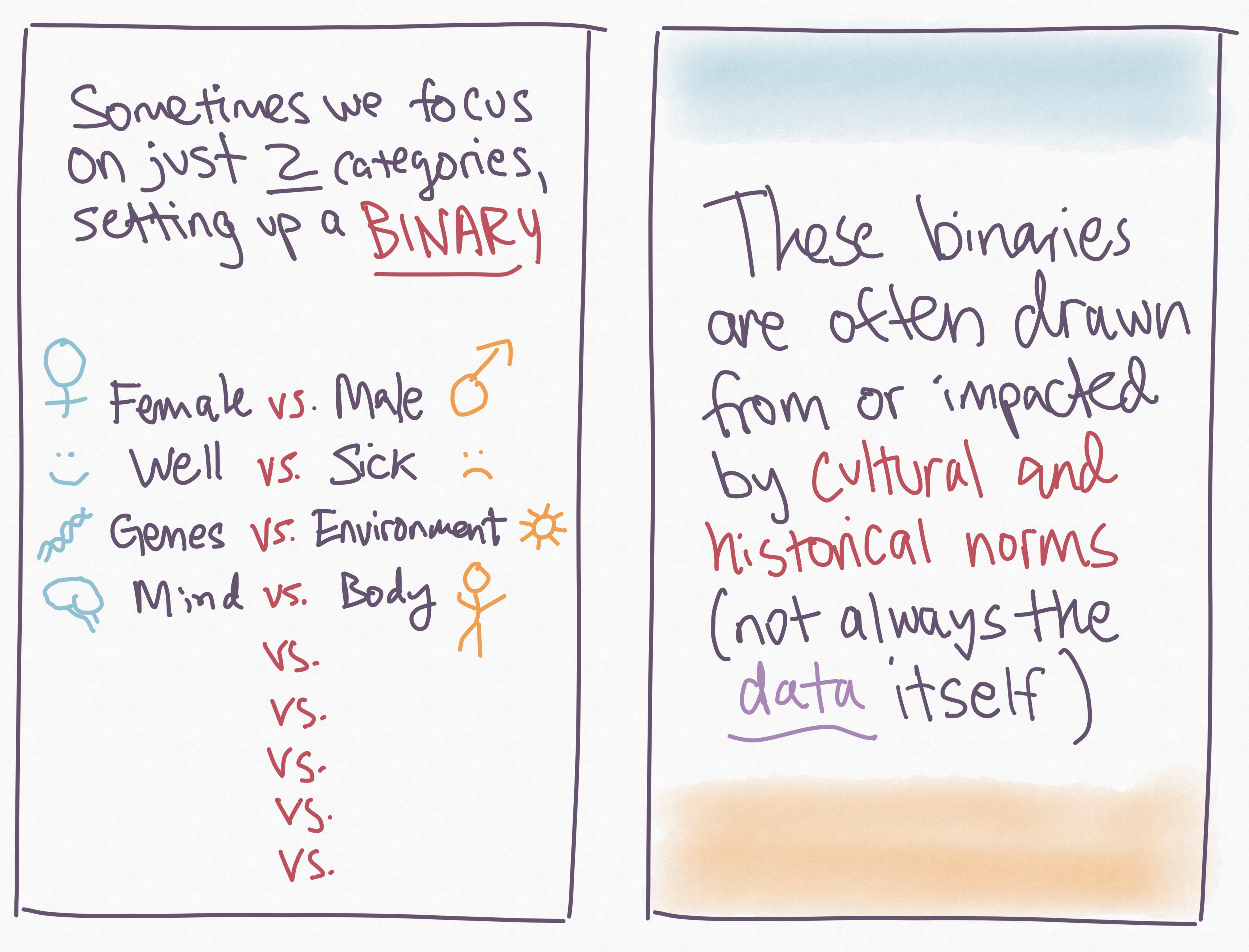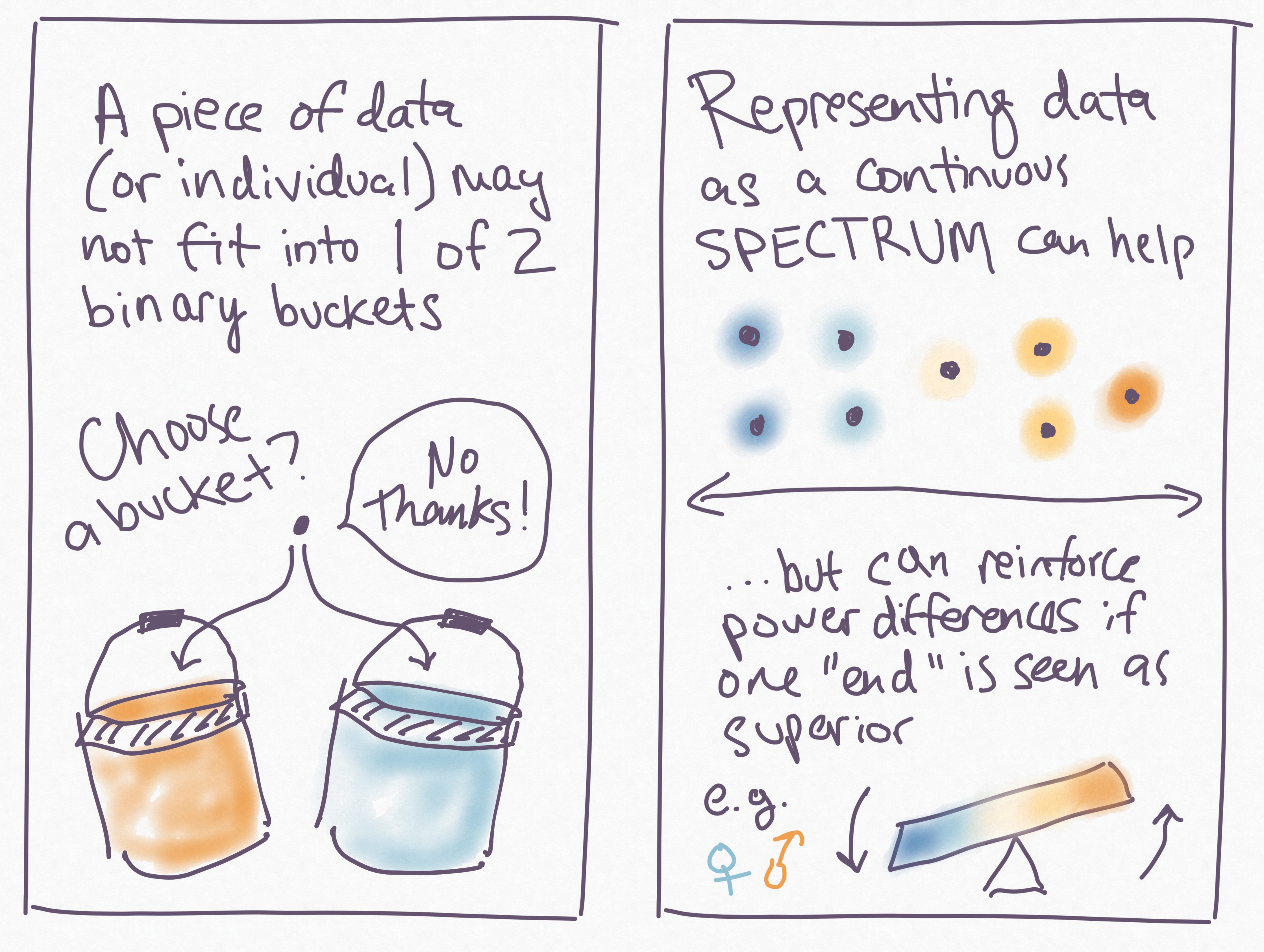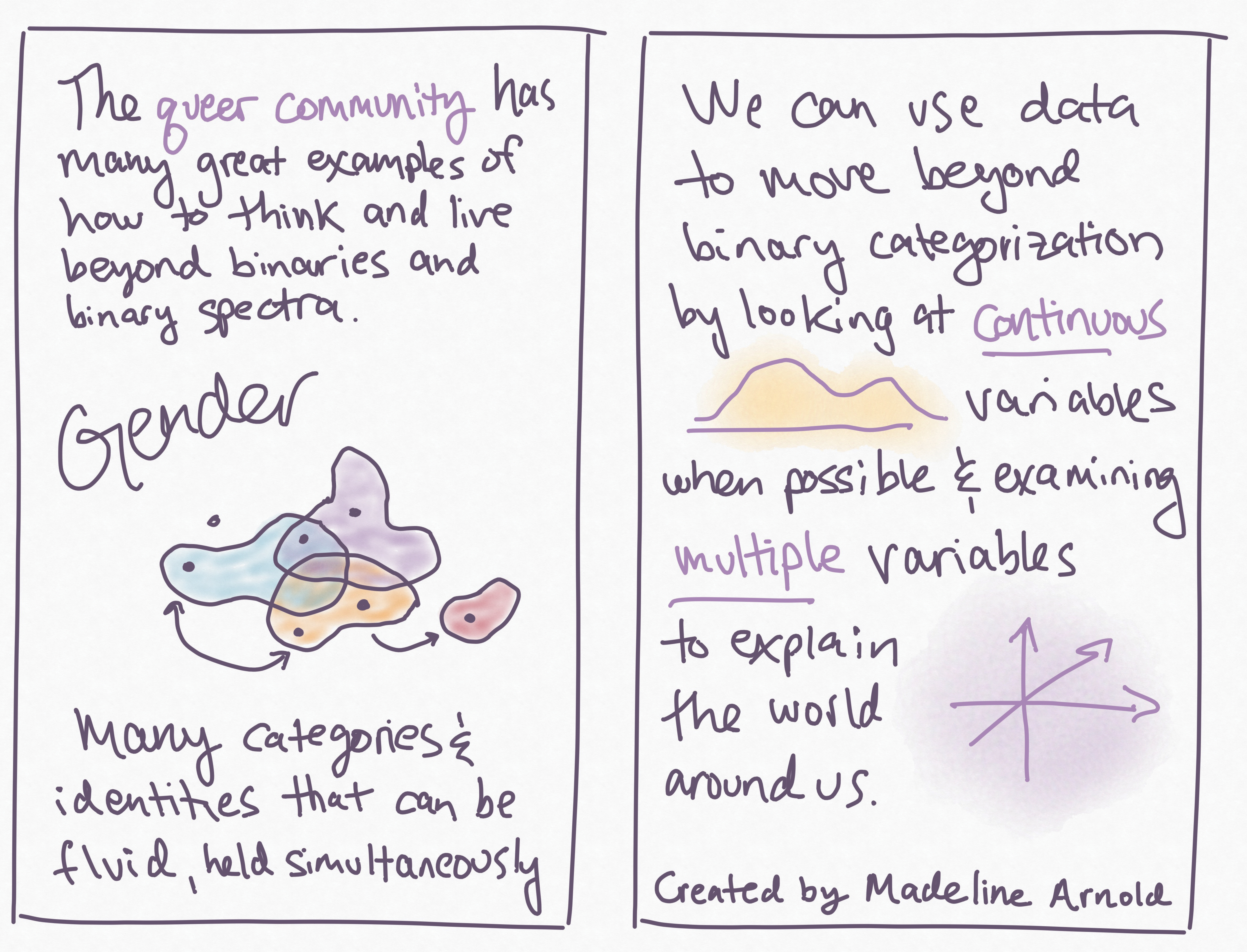This piece is motivated by my desire for scientific inquiry that is ethical and socially responsible. Simplistic binary thinking, which can both amplify and erase differences in harmful ways, can be challenged within scientific communities using both art and data approaches.
The ideas in this zine draw from my reflections as a researcher studying the biological basis of sex differences and are a response to the question “How can we queer science?”
Additionally, an alternative framework for understanding autism spectrum disorder outside the traditional “high functioning” and “low functioning” categories, offered by Hari Srinivasan in a Berkeley class on autism, inspired the theme. The zine format is great – approachable, fun, and cheap! – and I’ve found it’s an easy way to start a conversation about new ways to think and communicate about data.




Madeline Arnold is a scientist and science communicator who combines data, art, and community to address social issues. She is currently a doctoral student at UC Berkeley researching how the immune system impacts brain development in sex-specific ways and working on evidence-based interventions to improve equity and belonging in science. Madeline envisions a future where data and the scientific enterprise are accessible and community-based, generating insight and delight for everyone.